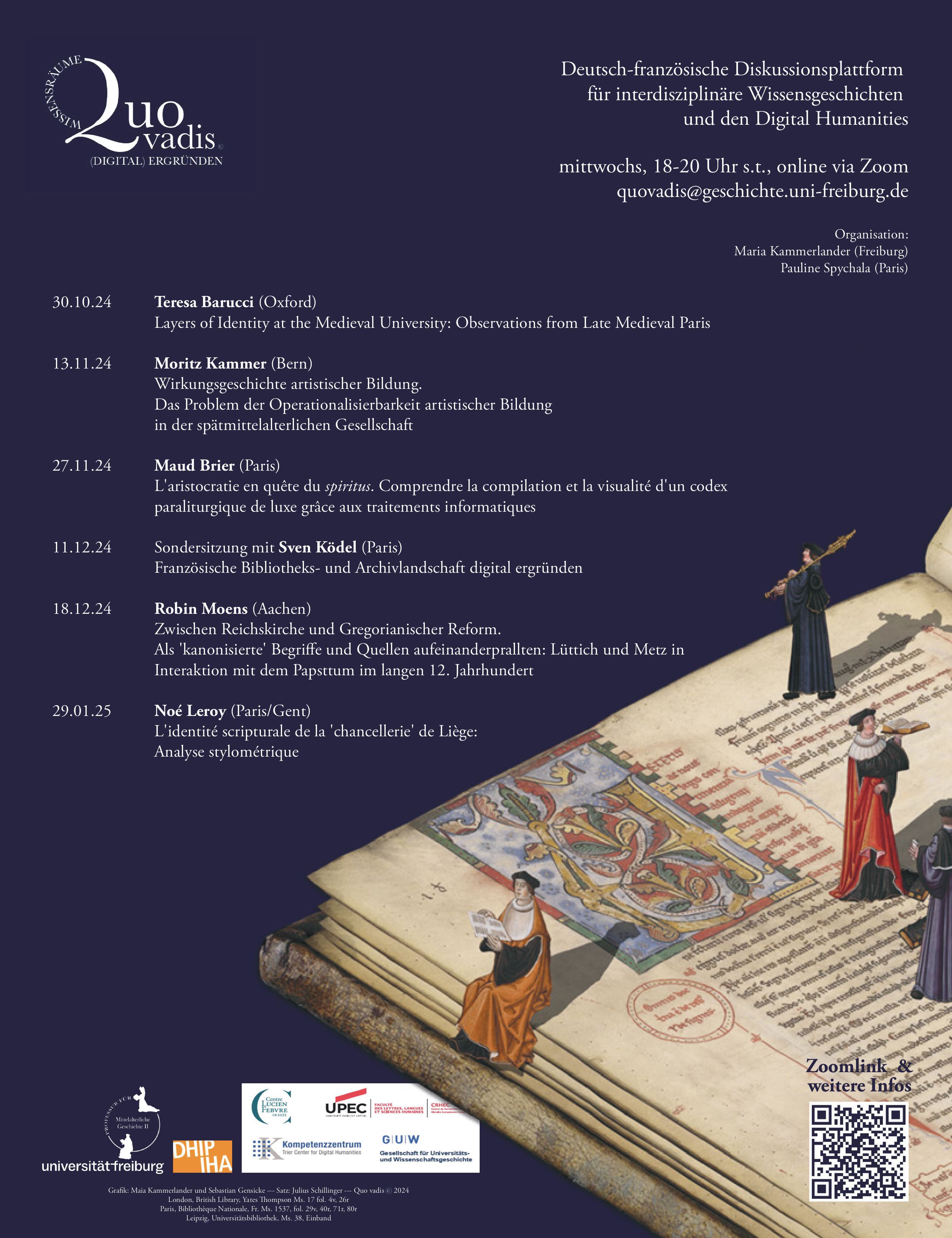Lecture by Sven Ködel (Paris): Französische Bibliotheks- und Archivlandschaft digital ergründen
As part of the event series for young emerging researchers.

Date:
11.12.2024Place:
6pm – 8pm
The organizing team welcomes registrations until the respective Monday prior to the lecture date via email at: quovadis geschichte.uni-freiburg.de (quovadis[at]geschichte[dot]uni-freiburg[dot]de)
geschichte.uni-freiburg.de (quovadis[at]geschichte[dot]uni-freiburg[dot]de)
Categories:
EventNumerous projects on the history of Europe from the 5th to the 16th century bear witness to the current interest in the contemporary conditions of knowledge production and dissemination. In doing so, they uncover unknown places and spaces because they determine the validity of knowledge. The bishop's hall becomes a lecture hall, the monastery turns into an innovation lab, and the royal chancery becomes an enforcer of order: knowledge spaces are created that need to be explored. The online seminar "Quo vadis" opens a German-French discussion space for doctoral candidates and advanced master's students whose projects apply the methods and theories of these research branches as analytical approaches. Based on a selected scholarly publication, the method or theory applied in the project will be presented, and the associated problems in concrete work will be collectively discussed and solutions will be sought.
The goal is to connect young researchers with each other: in seven sessions, they present their projects and a key text for their investigation. These texts will be provided to the participants in advance. The online seminar is not limited to historical medieval studies but benefits from interdisciplinary approaches, including digital history, romance studies, art history, German studies, and sociology, among others.
International online seminar by Maria Kammerlander (Univ. Freiburg) in cooperation with Dr. Pauline Spychala (DHIP).
Event in collaboration with the Society for University and Academic History, Trier Center for Digital Humanities, Centre de Recherche en Histoire Européenne Comparée EA 4392, and Centre Lucien Febvre UR 2273.


